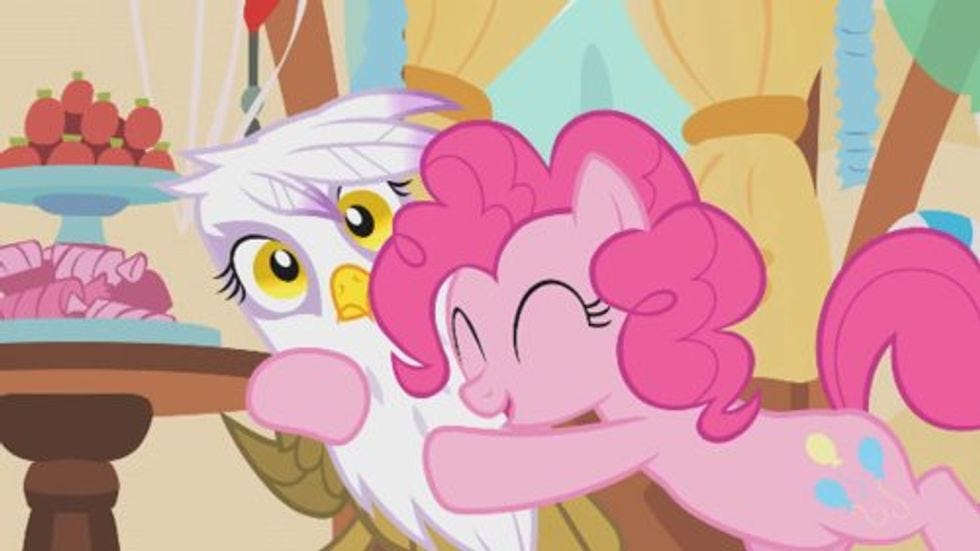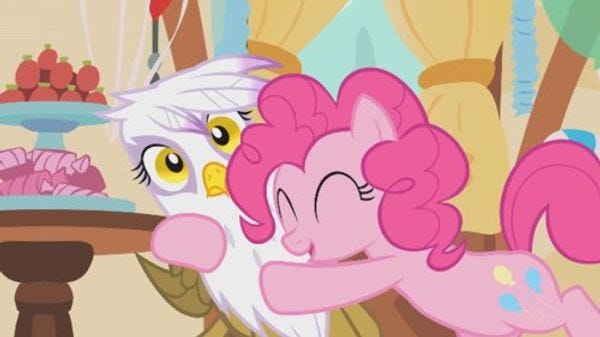No, Thanksgiving Is Not A Celebration Of Triumph Over Socialism: Your Tofurkey Warblog
It's Thanksgiving Day, so as we gather together with (or hide from) our families, however functional or dysfunctional they may be, let us remember the true meaning of any American holiday: It's an opportunity to pound home a political lesson about why We Are Good and They Are Bad. It's a revered grim tradition: You serve Susan Stamberg's socialist NPR cranberry relish, and your Teabagger brother-in-law recites how the settlers of Plymouth Plantationnearly starved because they had socialism forced upon them, but finally prospered after they became capitalists. Here's a fairly typical version of the story that was emailed to our Wonkette tip line; other versions are promoted by ugly bag of mostly lipids Rush Limbaugh and by the now-departing Rep. Todd Akin (R-Shut Down).
Happily, there are a couple of good debunkings of this idiocy, although they probably won't carry much weight with teahadis, since they come from the radical communist New York Times and the Marxist-Trotskyist-Muslim-Gangnam-Style Right Wing Watch. Should culture war break out around the dinner table, you may just want to say you got your rebuttals from Paul Harvey. Then when they go to look it up on their smartphone, you can spill gravy on it. Be sure to apologize. (We got that tactic from Saul Alinsky.)
According to one revisionist version of Plymouth Colony, the Pilgrims' basic error was in trying to live like the original Apostles:
The original colony at Plymouth Bay had been founded by Puritans who hoped to emulate the early Christians by keeping all their worldly goods in common. They forgot St. Paul’s admonition that only those who worked should be fed from the common store.
Other versions leave out any mention of Biblical sharing (which might raise uncomfortable questions about that Gallilean redistributionist anyway) and present the Pilgrims as victims of "a short-lived form of agricultural communism" imposed upon them by their sponsors back in England (BOOO!); in inay case, the scheme soon failed because under socialism, nobody had an incentive to work:
This system quickly failed. The women described the communal chores as a form of slavery, men rapidly lost motivation, and the able-bodied feigned illness to avoid work.
And there are even some selective quotes from Governor William Bradford's journal that say so!
"For this community [so far as it was] was found to breed much confusion and discontent, and retard much employment that would have been to their benefit and comfort. For young men that were most able and fit for labor and service did repine that they should spend their time and strength to work for other men's wives and children without any recompense."
Finally, after everyone nearly starved, Bradford threw out communism and gave each family their own parcel of land to work, and then even Nature rejoiced by bringing forth a bountiful harvest, YAY individual initiative!
Oh, and there were some Indians. Let's not get into that. (OK, maybe a little. In our emailed narrative, here's the sole mention that the Wampanoag lived nearby: "It was so bleak that some Pilgrims sold themselves as workers to the Indians for a few cups of food." Happily, the baggers stop short of suggesting that this example was where slavery came from.)
Except, maybe that's all a lot of hooey? For one thing, the first three-day Thanksgiving feast occurred in 1621, while what Bradford called the “common course" was still very much in effect. The actual division of land into family-owned plots came in 1623, a detail that some versions of the wingnut story find it useful to lie about; John Stossel actually moves the year of the first Thanksgiving to 1623. In any case, the original motivation for pooling resources had nothing to do with socialist ideology:
the plan was in the interest of realizing a profit sooner, and was only intended for the short term; historians say the Pilgrims were more like shareholders in an early corporation than subjects of socialism.
“It was directed ultimately to private profit,” said Richard Pickering, a historian of early America and the deputy director of Plimoth Plantation, a museum devoted to keeping the Pilgrims’ story alive.
Oh, and the whole famine thing? Conditions were definitely hard, especially for settlers unaccustomed to decidedly non-English climate and growing conditions:
The arrangement did not produce famine. If it had, Bradford would not have declared the three days of sport and feasting in 1621 that became known as the first Thanksgiving. “The celebration would never have happened if the harvest was going to be less than enough to get them by,” Mr. Pickering said. “They would have saved it and rationed it to get by.”
The competing versions of the story note Bradford’s writings about “confusion and discontent” and accusations of “laziness” among the colonists. But Mr. Pickering said this grumbling had more to do with the fact that the Plymouth colony was bringing together settlers from all over England, at a time when most people never moved more than 10 miles from home. They spoke different dialects and had different methods of farming, and looked upon each other with great wariness.
“One man’s laziness is another man’s industry, based on the agricultural methods they’ve learned as young people,” he said.
Stupid historians, with their "context." Can't they just recognize socialism causes laziness? People never help each other unless you pay them to! Oh, hey, what was that about getting paid? As one happy anarcho-socialist points out, the division of land into private family plots (which, had been part of the plan all along, not a reaction to the failure of socialism) wasn't even actual capitalism:
Everyone had their own parcel of land – they were self-employed! They kept the product of their own labour. If it were capitalism, they would have given the land to a few landlords and turned everyone else into wage-workers. The landlord would have kept the product of the workers’ labour and the actual workers, well, they would get just a fraction of what they produced.
Even the notion that individual plots increased harvests is pretty dubious; as that egghead Plimoth Plantation director notes:
The real reason agriculture became more profitable over the years, Mr. Pickering said, is that the Pilgrims were getting better at farming crops like corn that had been unknown to them in England.
That is obviously just socialist nonsense, as the real magic was the magic of the marketplace, which, uhhh... hadn't quite really become a booming hive of capital yet. It was subsistence farming all the way, but why let that get in the way.
So, to wrap up: Not surprisingly, wingnuts know as much about history as they do about how the U.S. Constitution works. And if you want a good read about the Massachussetts Bay colony's early days -- the guys who came a bit after the Pilgrims -- go read Sarah Vowell's The Wordy Shipmates. Good luck at dinner, and may you and your teabagger relatives enjoy the warm embrace of family, if not a shared understanding of reality.

(You didn'treallythink we'd get through this without Ponies, did you? Silly.)
[ NYT / RightWingWatch ]
Check out Wonkette on Facebook and Twitter , and, if you're thankful for snark and Ponies, Doktor Zoom is on Twitter too.




The gf and I laughed about that today. I said that Sarah Benincasa asked for bigoted tweets from her fans, and the gf said "let's face it, repubs are few and far between at any black turkey day" . Then we joined our family around the campfire to tell Whitey stories.
Maybe next year we should have a Thanksgiving dinner version of the drinky thing for people who would otherwise have to eat with wingnut relatives. I'll bring mashed potatoes.